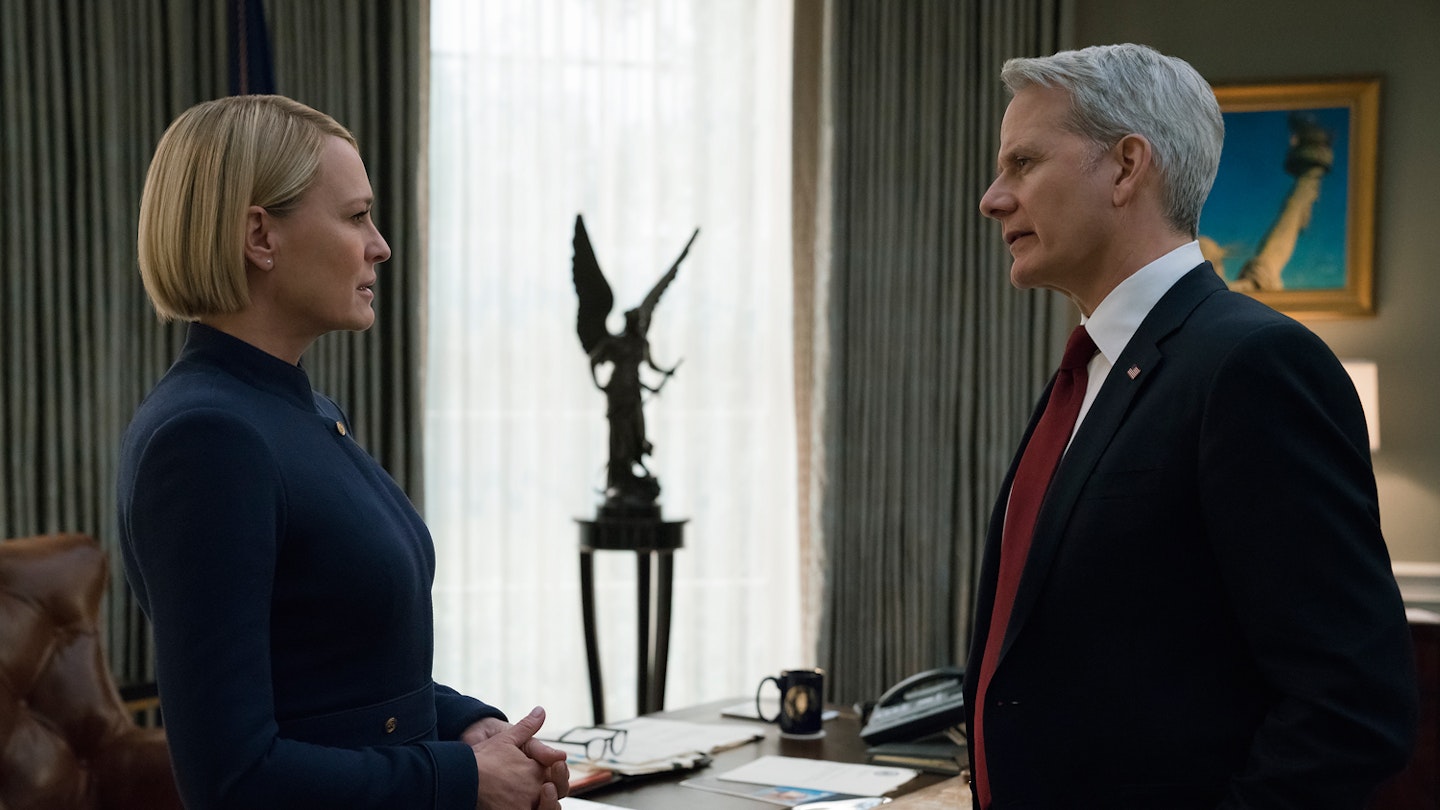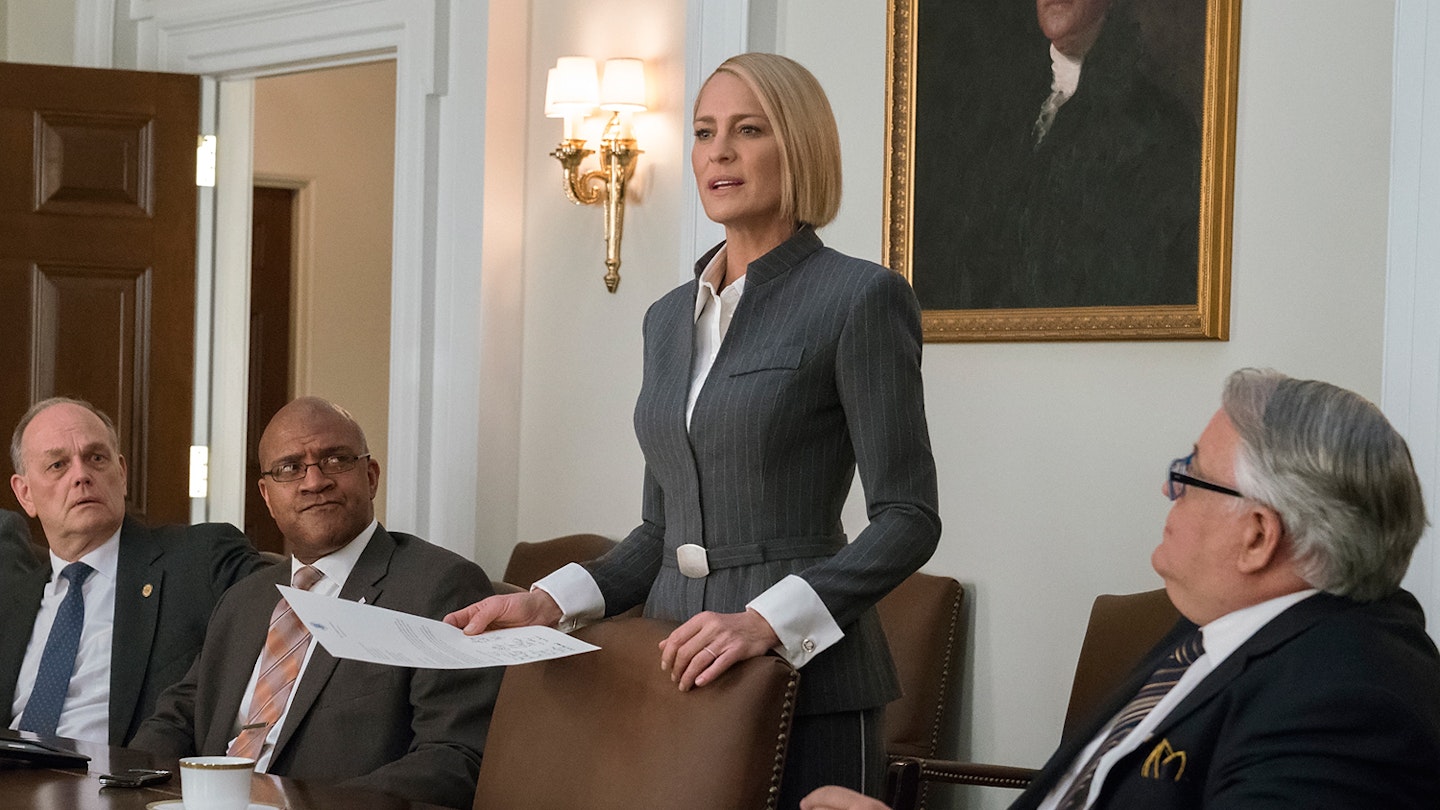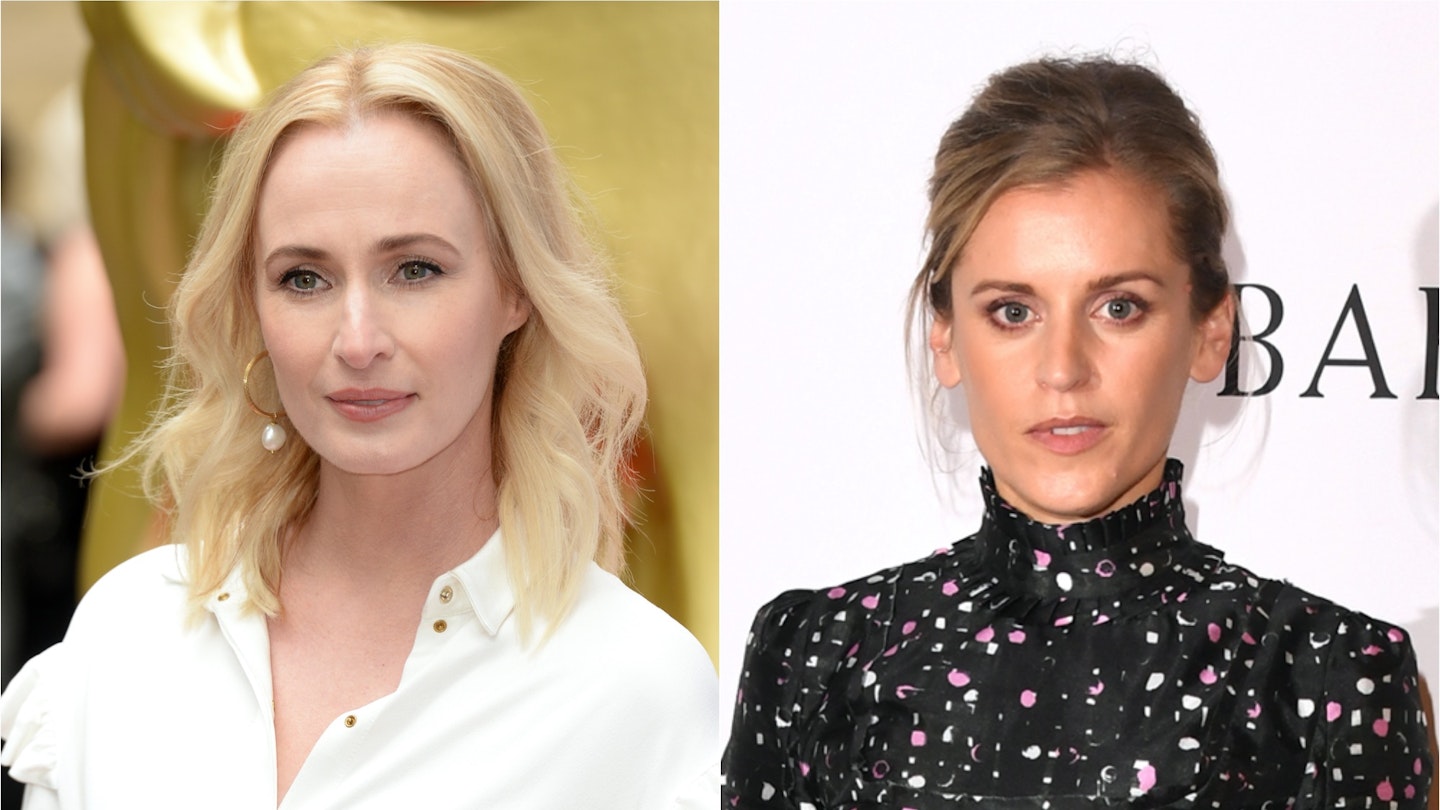Episodes viewed: 1-5
Losing a star is no easy thing for a drama, even if you have a supporting cast as strong as House Of Cards’. But it’s not only the absence of Frank Underwood that causes problems here. This sixth and final season sees Robin Wright’s Claire Underwood finally take centre stage, and her increased role gives the show a tone and pace that feels quite different from what has gone before. It’s fresh, but not always satisfying — and it can’t surmount the tricky issue of its contrast to America’s political reality.
Once again, plot elements are ripped from the real world, with Syria, mass surveillance and the testimony of criminal accomplices all in play as Underwood attempts to cement her own power. But the main thrust of the story is her attempt to stay free from the dominance of big business, which puts the show firmly in wish fulfilment territory. Frank Underwood is missed — at first. There was an impish edge to his Machiavellian scheming; Claire is, wisely, wary in her plots, facing a greater uphill battle than her husband ever did. The opening scene, for example, notes her much higher volume of hate mail. She must keep her emotions in check, so her composure is absolute. Her strategy is to recruit other women, idealistically to promote equality, but also calculating that such appointees will be loyal to her. Yet she trusts almost no-one entirely. Her opponents are right-wing industrialist Bill Shepherd (Greg Kinnear) and his sister Annette (Diane Lane), a childhood friend of Claire’s who’s just as gifted in using her looks and her brains to get ahead.
The strange fact is that Netflix’s first big, homegrown hit has begun to feel a little dated.
Underwood’s risk-averse incrementalism feels realistic for a female politician, though it doesn’t always make for gripping drama. Wright, however, is predictably magnetic, while Lane adds fire and Patricia Clarkson’s political operator Jane brings a touch of unpredictable quirk. The dialogue is sometimes clunky — a US Vice President corrects Russian premier Petrov (Lars Mikkelsen) when he refers to World War II as the “Great Patriotic War”, rather than diplomatically acknowledging the designation — but there are still some gloriously sharp moments (“Playing incompetent is so exhausting,” sighs Claire to camera).

Claire Underwood is a monster, yes, who will put the acquisition of personal power over her country’s interest. But her schemes still manage to achieve occasionally positive things for her people and she has little regard for self-enrichment. Some of her actions are even, almost, noble. The strange fact is that Netflix’s first big, homegrown hit has begun to feel a little dated, because its format, and lead, are too formal to allow for much evolution. As we saw last season, politics is faster than this now, an endless churn of scandal and grotesquery, and House Of Cards remains its own chilly, composed self.

